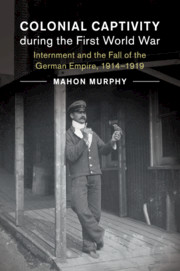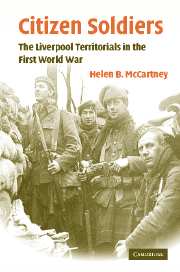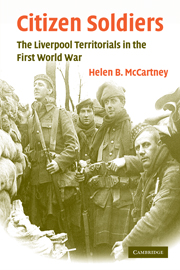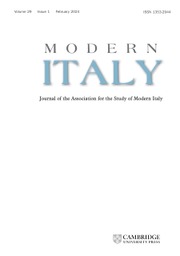State, Society and Mobilization in Europe during the First World War
This is a volume of comparative essays on the First World War that focuses on one central feature: the political and cultural "mobilization" of the populations of the main belligerent countries in Europe behind the war. It explores how and why they supported the war for so long (as soldiers and civilians), why that support weakened in the face of the devastation of trench warfare, and why states with a stronger degree of political support and national integration (such as Britain and France) were ultimately successful.
- A rigorous, structured comparison of different national cases in World War I from a military, social and political standpoint
- Offers a spread of high-class authors from Britain, France, Ireland, Germany and the USA
- Makes a major contribution to the conceptual study of 'mobilization' as a process and of 'total war'
Reviews & endorsements
"This is new social history and deals with the culture battles fought out within as well as among the belligerent powers, at home and in the trenches, during th eGreat War. ...the research is uniformly competent. ,,,these essays do integrate current historiography with new or previously underutilized sources and remind us that often the most important things in a war do not occur on the battlefield." Daniel R. Beaver, Military History
"This volume is a state-of-the-art encapsulation of research into European society during the period. The editor is to be congratulated for ensuring the snug fit of all of the substantially revised contributions (only half of those given at the conference) into a comparative study of the cultural and poltical mobilization of European societies. This is an important work, innovative in its research and nuanced in its conclusions." J.F.V. Keiger, The International History Review
Product details
February 2011Adobe eBook Reader
9780511821783
0 pages
0kg
This ISBN is for an eBook version which is distributed on our behalf by a third party.
Table of Contents
- List of contributors
- Preface
- 1. Introduction: mobilising for 'total war', 1914–1918 John Horne
- Part I. National Ideals:
- 2. German artists, writers and intellectuals and the meaning of war, 1914–1918 Wolfgang J. Mommsen
- 3. Children and the primary schools of France, 1914–1918 Stéphane Audoin-Rouzeau
- 4. War, 'national education' and the Italian primary school, 1915–1918 Andrea Fava
- Part II. Solidarities and Minorities:
- 5. Mobilising labour and socialist militants in Paris during the Great War Jean-Louis Robert
- 6. Between integration and rejection: the Jewish community in Germany, 1914–1918 Christhard Hoffmann
- 7. Wackes at war: Alsace-Lorraine and the failure of German national mobilisation, 1914–1918 Alan Kramer
- Part III. Army and Nation:
- 8. Discipline and morale in the British army, 1917–1918 David Englander
- 9. Remobilising the citizen-soldier through the French army mutinies of 1917 Leonard V. Smith
- 10. The German army, the authoritarian nation-state and total war Wilhelm Deist
- 11. Morale and patriotism in the Austro-Hungarian army, 1914–1918 Mark Cornwall
- Part IV. The Limits and Consequences of Mobilisation:
- 12. Remobilising for 'total war': France and Britain, 1917–1918 John Horne
- 13. Mobilisation and demobilisation in Germany, 1916–1919 Richard Bessel
- 14. The Italian experience of 'total' mobilisation, 1915–1920 Paul Corner and Giovanna Procacci
- Notes
- Index.







.jpg)
.jpg)
